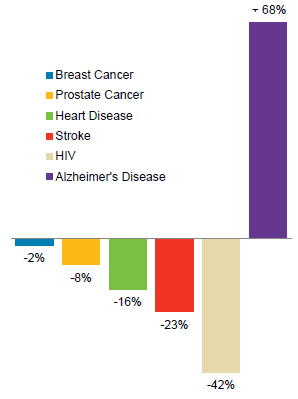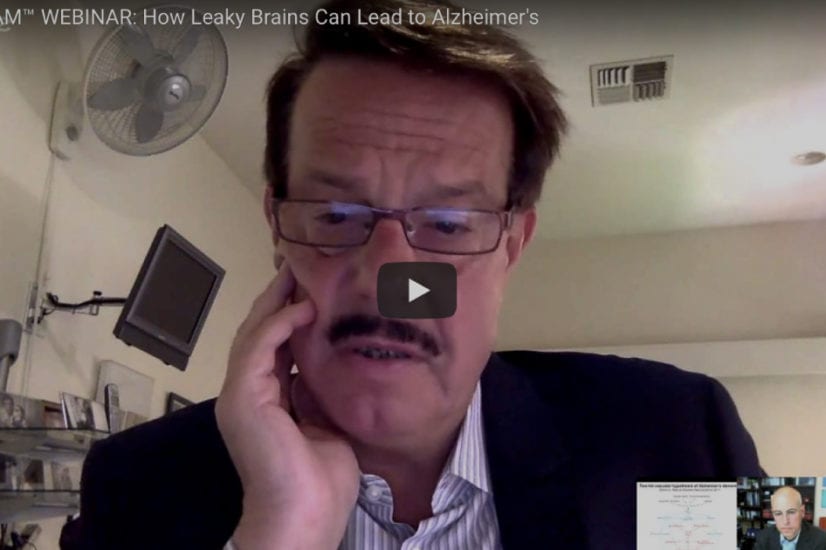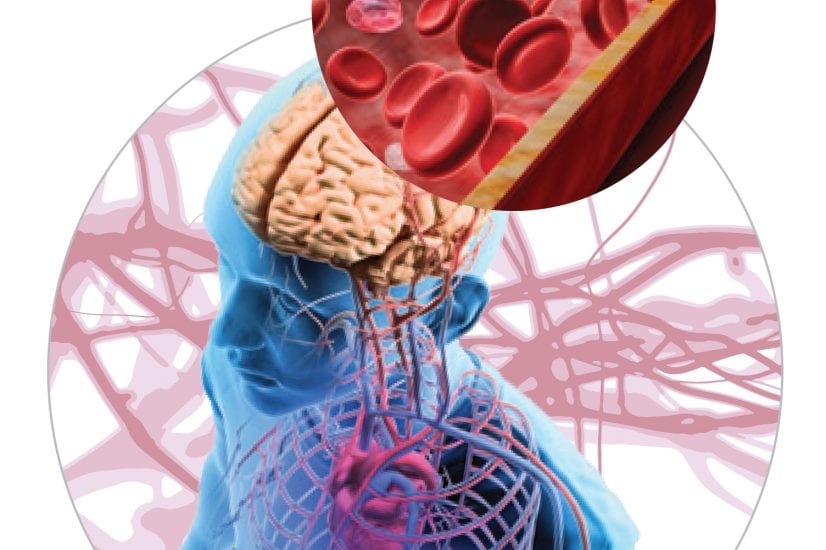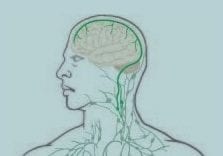
Posted March 7, 2014

Right: In recent years, Alzheimer’s mortality has increased by 68%, while mortality rates for all other leading causes of death have fallen.
Causes of death are typically analyzed by looking at death certificate data. Using this method, Alzheimer’s disease has typically been considered the 6th leading cause of death in the United States.
A new study published in the medical journal of the American Academy of Neurology questions the usefulness of the death certificate method and subsequently reports that Alzheimer’s may actually be the third leading cause of death – right behind heart disease and cancer.
A death certificate will relay the most “immediate” cause of death, but often ignores underlying conditions. Bryan James, epidemiologist and lead author of the Academy of Neurology report, explains that while the certificates are not inaccurate, they do not provide a complete picture. According to James, we need to ask not only what person died from, but also “what put them in the hospital with that condition”.
This is an especially relevant for a disease such as Alzheimer’s, which can cause many other life-threatening medical conditions. For example, the official cause of death for many people with Alzheimer’s is pneumonia. Alzheimer’s can cause problems with swallowing, leading to food going down a patient’s windpipe.
In a recent interview, Dr. Rudy Tanzi also pointed out that many late-stage Alzheimer’s patients are bedridden – and “being bedridden takes its toll”, often leaving the patient susceptible to infections.
Determining the number of Alzheimer’s deaths more accurately is vitally important. It gives us a more realistic picture of the costs of the disease, and it stresses the need for far more funding of research towards a cure or effective treatment.
Cure Alzheimer’s Fund supports efforts to get the truth about Alzheimer’s—the devastation it causes to patients, their families and other caretakers. This journal article only underscores the need for better, faster research to end this scourge as it grows not only from under-reporting, but also from the presence of more people aging into the years where symptoms become obvious.





